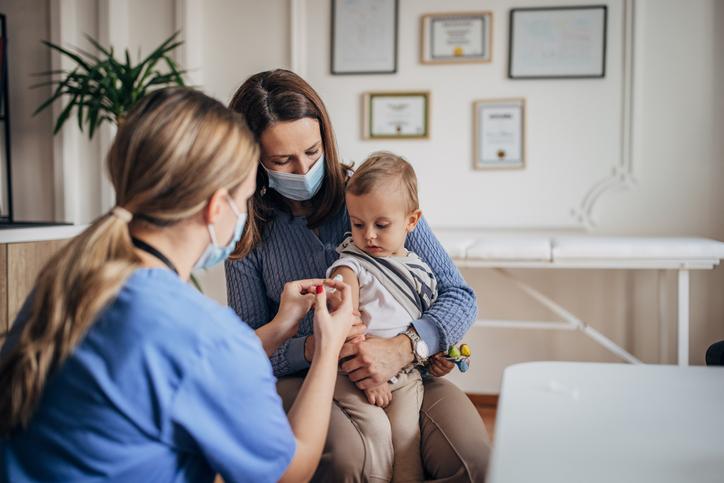
All change for routine childhood vaccinations
The UK Health Security Agency has announced significant changes to the routine childhood vaccination schedule from 1 July 2025.
Prompted by the discontinuation of the Menitorix (Hib/MenC) vaccine, the Joint Committee on Vaccination and Immunisation (JCVI) has made a number of recommendations to improve the overall protection of children, including the introduction of a new routine vaccination appointment at 18 months.
Protection against MenC is no longer considered necessary for 1-year-olds as a result of the success in controlling the infection by the vaccination of adolescents. However, it is vital that coverage of MenACWY is maintained in adolescents to maintain indirect protection.
The first dose of PCV13 is to be moved from the second routine appointment at 12 weeks to 16 weeks, and the second dose of MenB will be moved from 16 weeks to 12 weeks. This is to provide earlier protection against meningitis B, which can be fatal, while avoiding an increase in the number of injections at the second visit. The short delay in PCV13 is considered to unlikely to be significant.
For infants eligible for the selective neonatal HepB programme, the addition of a dose of hexavalent vaccine at 18 months replaces the need to receive a dose of monovalent HepB vaccine at 1 year.
From 1 January 2026, a new routine appointment at 18 months will enable children to receive an additional dose of DTaP/IPV/Hib/HepB (hexavalent). This will replace the Hib dose that will no longer be given at the 1-year appointment.
The second MMR dose will also now be offered at the new routine 18 month appointment, to help improve uptake and provide earlier protection to young children.
Full details of the changes are available here.
Related news
View all News